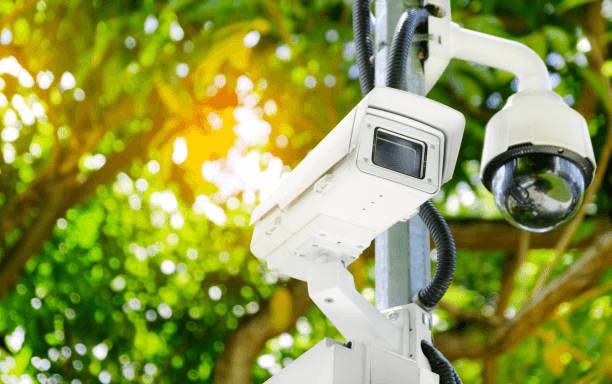How to Choose the Right Security Camera
Ensuring the safety and security of your property and assets is essential, and a security camera can provide valuable surveillance and monitoring. With so many options on the market, choosing the right security camera can be overwhelming. As a leading CCTV manufacturer in China, JER Technology Co., Ltd is here to help. With years of experience in the industry, we understand the importance of security and the need for reliable surveillance systems. In this buying guide, we will outline the different types of security cameras available and the factors to consider when selecting a camera. Trust us to provide high-quality security cameras for your commercial or residential needs.
When selecting a security camera, there are several factors to consider. Here is our guide to help you choose the right security camera for your specific needs:
Types of Security Cameras
Analog Cameras
Analog cameras, also known as CCTV cameras, are a type of security camera that transmit video signals over coaxial cables. They are the traditional type of security camera and have been in use for decades in homes, businesses, and public places.
Analog cameras come in a variety of shapes and sizes, including dome cameras, bullet cameras, and PTZ cameras. They are typically connected to a recording device, such as a digital video recorder (DVR), using BNC (Bayonet Neill-Concelman) cables.
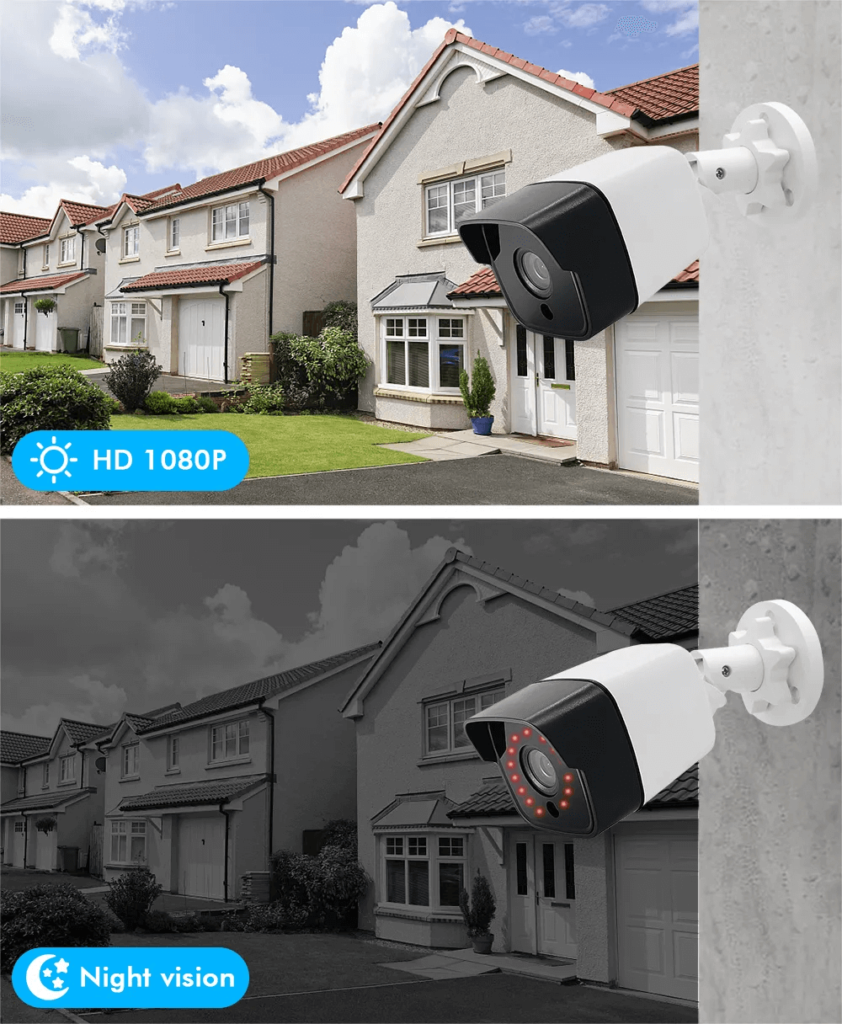
Analog cameras have evolved over time and now include AHD (Analog High Definition), TVI (Transport Video Interface), and CVI (Composite Video Interface) cameras, which are capable of producing high-definition images up to 8MP. AHD cameras use analog signals to transmit high-definition video, and they can support resolutions of up to 8MP. TVI and CVI cameras are similar to AHD cameras and can also produce high-definition images up to 8MP.
One of the main advantages of analog cameras is their affordability compared to IP cameras. They are generally less expensive and require less bandwidth and storage space. They are also easy to install and require minimal technical expertise, as they can be connected directly to a DVR or monitor.
However, one of the main disadvantages of analog cameras is their lower resolution compared to IP cameras. While AHD, TVI, and CVI cameras can produce high-definition images, they still have lower resolutions compared to IP cameras. Additionally, analog cameras are less flexible and scalable, as multiple cameras require multiple cables and recording devices.
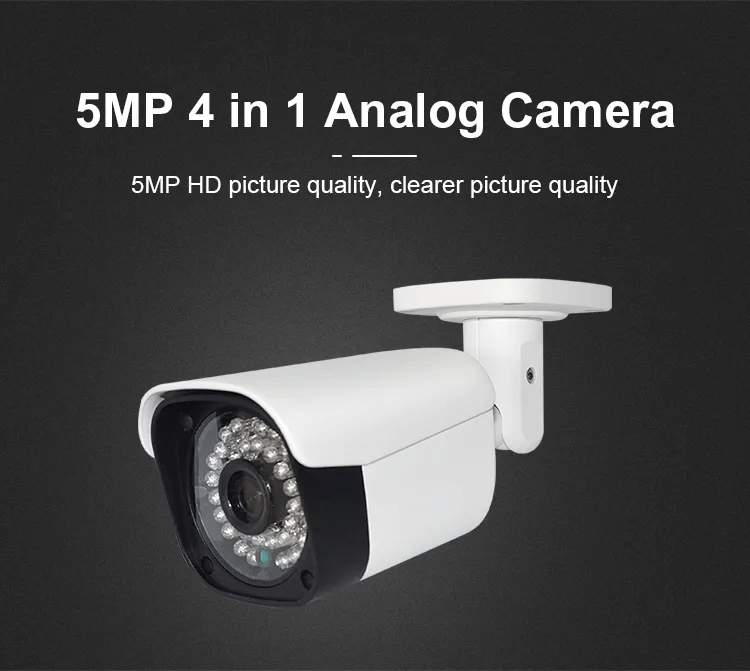
Analog cameras are best suited for applications where a high level of detail is not required, such as monitoring parking lots, entrances, or public areas. They are ideal for small to medium-sized businesses or homes with limited budgets or technical expertise.
Overall, analog cameras offer a simple and cost-effective option for monitoring indoor and outdoor areas. They are easy to install and require minimal technical expertise, making them ideal for homeowners, business owners, and property managers who need a basic security solution. However, they are less flexible and scalable than IP cameras and offer lower-resolution images.
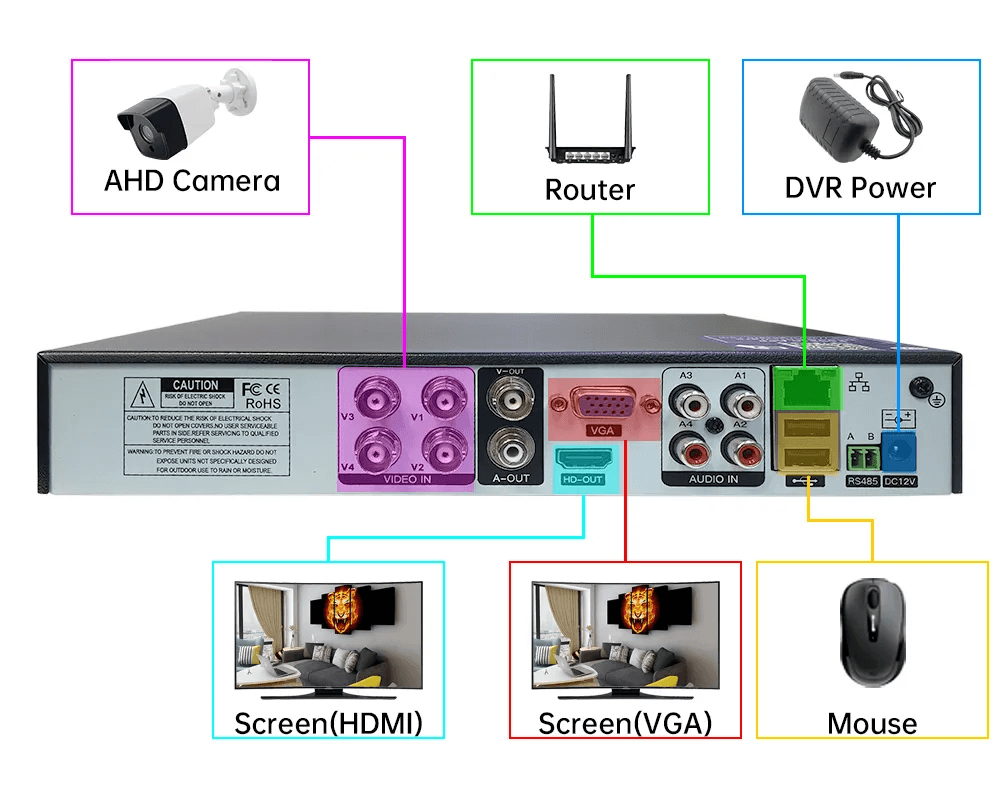
IP Cameras
IP cameras, also known as network cameras, are a type of security camera that transmit video signals over a network or the internet. They are ideal for applications where multiple cameras need to be connected to a single recording device or where remote access and monitoring are required.
IP cameras come in a variety of shapes and sizes, including dome cameras, bullet cameras, and PTZ cameras. They are typically connected to a local area network (LAN) using an Ethernet cable and can be powered by an external power supply or through Power over Ethernet (PoE) technology.
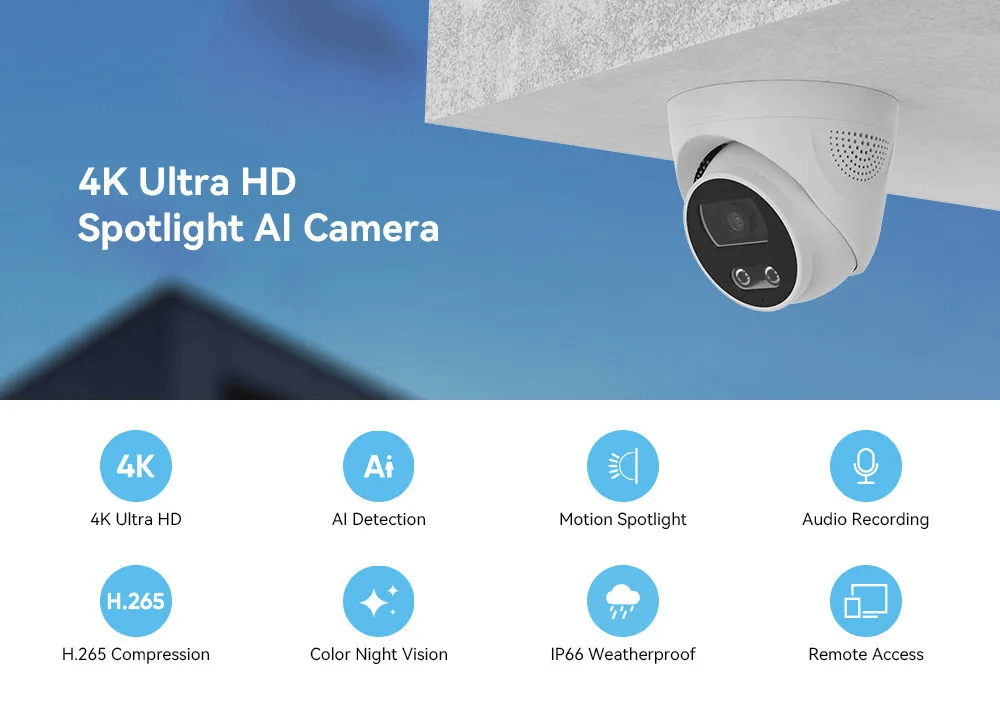
IP cameras offer several advantages over analog cameras. They provide higher-resolution images and can support a wider range of video compression standards, including H.264 and H.265. They also offer greater flexibility and scalability, as multiple cameras can be connected to a single recording device or network video recorder (NVR).
Another advantage of IP cameras is their remote access and monitoring capabilities. Users can view live footage or recorded video from any location with an internet connection, using a web browser or a mobile app. Some IP cameras also offer motion detection and alerts, which can notify users when there is an activity in the monitored area.
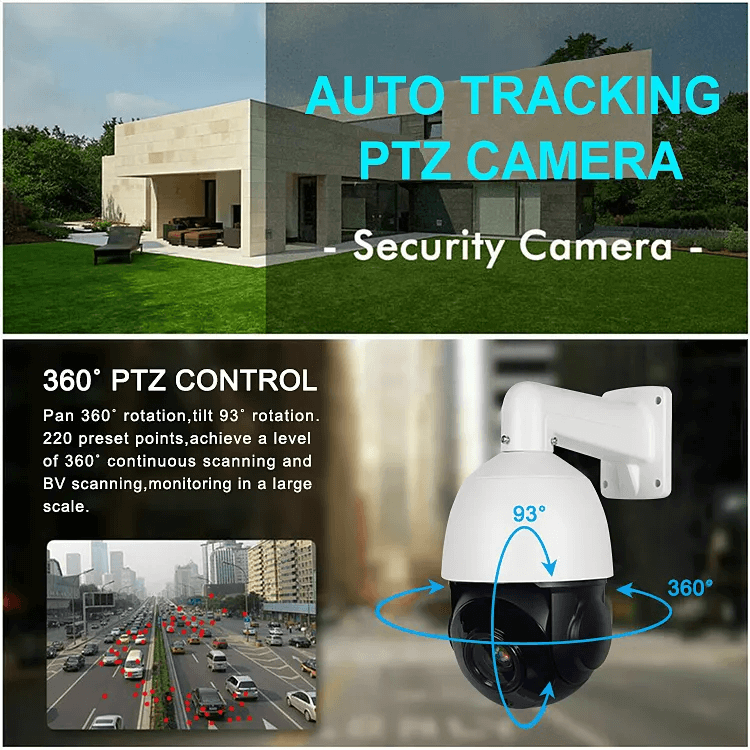
One of the main disadvantages of IP cameras is their higher cost compared to analog cameras. They also require a stable and reliable network connection, which can be a concern in areas with weak or spotty Wi-Fi coverage. Additionally, IP cameras can be vulnerable to cyber threats, such as hacking or unauthorized access.
Overall, IP cameras offer a powerful and flexible option for monitoring indoor and outdoor areas. They provide high-resolution images, remote access, and monitoring capabilities, and can be easily integrated with other security systems. They are ideal for homeowners, business owners, and property managers who require a scalable and customizable security solution.
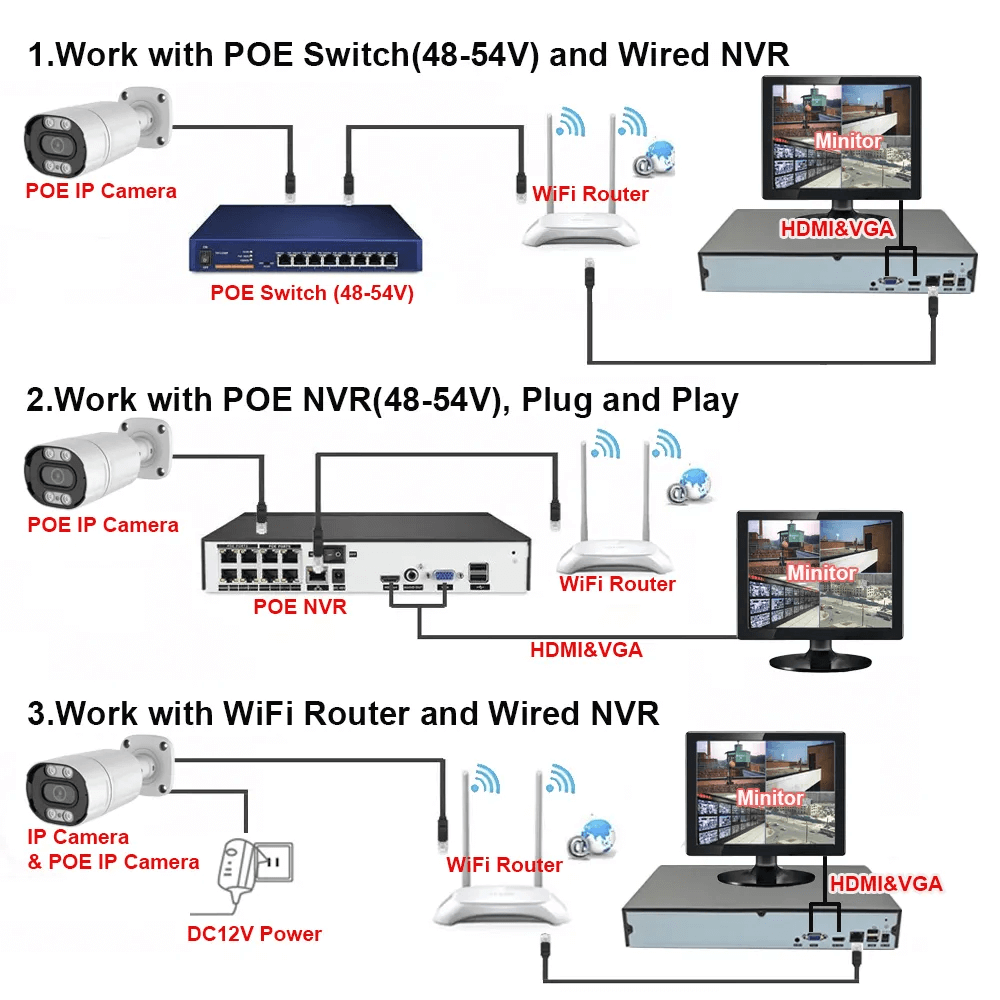
Wireless Cameras
Wireless cameras, also known as Wi-Fi cameras, are a type of security camera that connects to a local Wi-Fi network to transmit video signals to a recording device. They are ideal for applications where cables are difficult to install, such as remote locations or areas where drilling holes for cables is not an option.
There are several types of wireless cameras available, including indoor and outdoor models. Indoor wireless cameras are designed for use in homes or businesses and are ideal for monitoring children, pets, or employees. They are typically small and discreet and can be placed on a shelf or mounted on a wall.
Outdoor wireless cameras, on the other hand, are designed for use in areas such as parking lots, backyards, and entrances. They are weather-resistant and can withstand harsh outdoor conditions, such as rain and extreme temperatures.

Wireless cameras offer several advantages over wired cameras. They are easy to install and do not require cables or drilling holes, which can save time and money. They are also portable and can be moved from one location to another without the need for rewiring.
Wireless cameras typically come with a mobile app that allows users to view live footage or recorded video on their smartphones or tablets. Some models also come with motion detection and alerts, which can notify users when there is an activity in the monitored area.
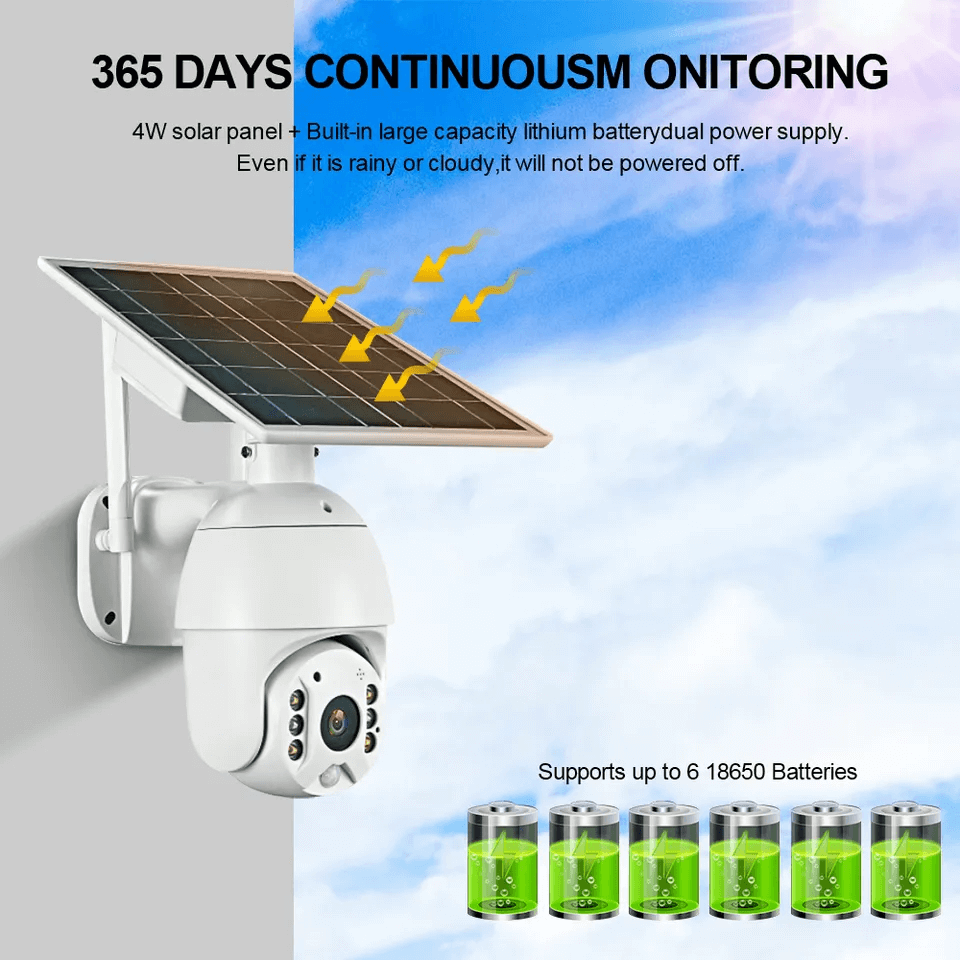
One of the main disadvantages of wireless cameras is that they can be vulnerable to interference from other Wi-Fi devices or electronic devices, which can cause signal disruptions and video quality issues. Additionally, wireless cameras are dependent on the strength and reliability of the Wi-Fi network, which can be a concern in areas with weak or spotty Wi-Fi coverage.
Overall, wireless cameras offer a convenient and cost-effective option for monitoring indoor and outdoor areas. They are easy to install and offer remote access and monitoring capabilities, making them ideal for homeowners, business owners, and property managers.
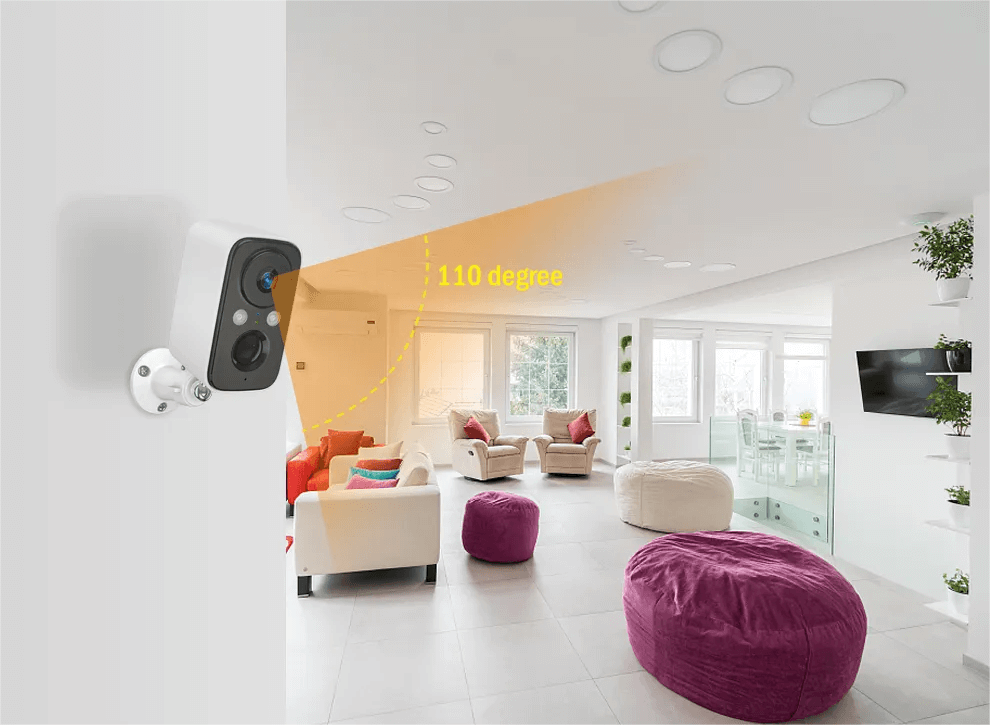
Factors to Consider When Choosing a Security Camera
Resolution
Resolution is one of the most important factors to consider when choosing a security camera. It determines the clarity and quality of the images captured by the camera. The higher the resolution, the clearer the image will be. Cameras with high resolutions are typically more expensive, but they are also more effective in capturing details such as license plate numbers and facial features.
Field of View
Field of view refers to the area that the camera can capture. The wider the field of view, the more area the camera can cover. This is especially important for outdoor applications, where the camera needs to cover a large area such as a parking lot or a backyard.
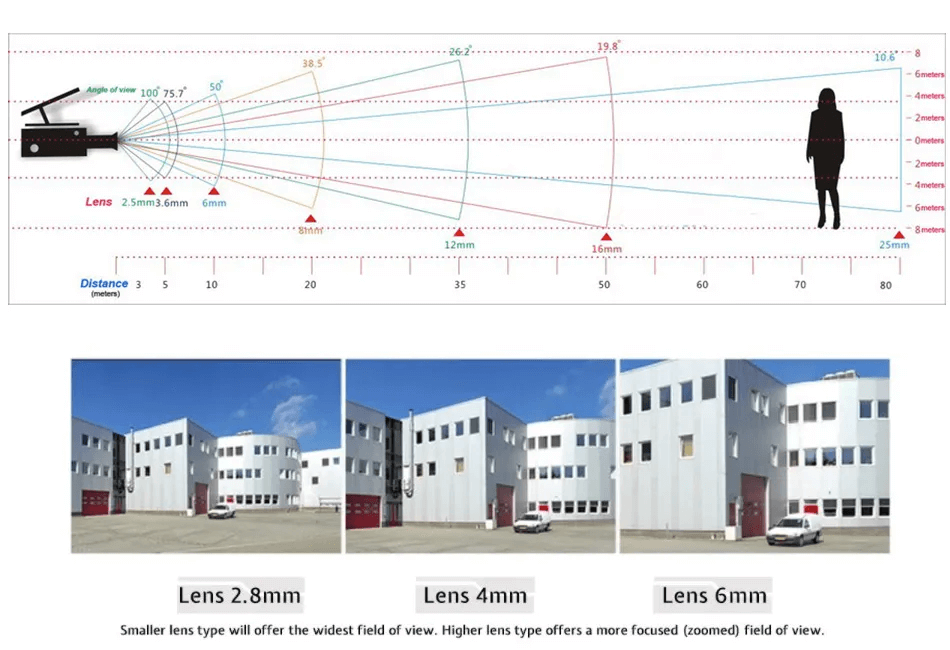
Night Vision
Night vision is essential for outdoor applications where lighting is limited or non-existent. Cameras with infrared night vision are ideal for outdoor applications, as they can capture clear images even in complete darkness.
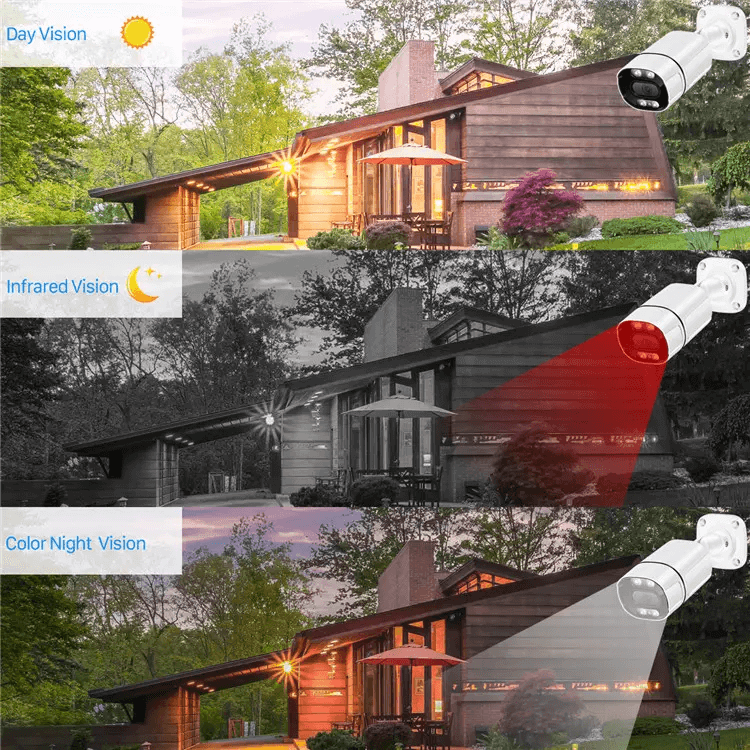
Motion Detection
Motion detection is another important feature to consider when selecting a security camera. Cameras with motion detection can alert you when someone enters the area being monitored, and can also trigger recording. This feature is especially useful for residential applications, where you can be alerted when someone enters your property.
Storage
Storage is important for recording and storing footage captured by the camera. There are two main types of storage: local and cloud-based. Local storage involves storing footage on a hard drive or memory card, while cloud-based storage involves storing footage on remote servers. Both options have their own advantages and disadvantages, and the choice depends on your specific needs.
Budget
Finally, budget is an important consideration when choosing a security camera. Analog cameras are typically less expensive than IP cameras, but IP cameras provide higher image quality and more advanced features. It is important to balance the desired features and image quality with the available budget.
Conclusion
At JER Technology Co., Ltd, we offer a wide range of high-quality security cameras designed to meet various needs and requirements. Our cameras use advanced technology and top-quality materials to ensure they are durable, efficient, and effective. Trust us to provide the perfect security solution for your property and assets.

